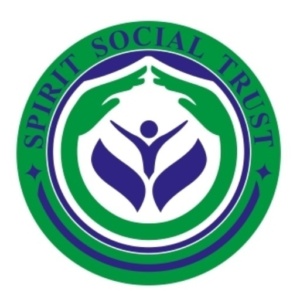Student empowerment guidance programs are designed to support students in developing the knowledge, skills, and mindset necessary to take ownership of their education, make informed decisions, and achieve their academic and personal goals. These programs aim to empower students to become self-directed learners, critical thinkers, and responsible members of their communities. Here's an overview of what you might find in a student empowerment guidance program:
Goal Setting and Planning: Students learn how to set SMART (Specific, Measurable, Achievable, Relevant, Time-bound) goals for their academic, personal, and career aspirations. They receive guidance on developing action plans and strategies to work towards their goals effectively.
Self-Awareness and Personal Development: Students engage in activities and assessments to explore their strengths, interests, values, and learning styles. They reflect on their motivations, aspirations, and areas for growth, gaining a deeper understanding of themselves and their potential.
Study Skills and Academic Support: Programs offer resources and workshops to help students improve their study habits, time management, note-taking, test preparation, and academic performance. They learn effective learning strategies, organizational techniques, and problem-solving skills to succeed in their coursework.
Decision Making and Problem Solving: Students develop critical thinking skills and decision-making abilities by analyzing situations, evaluating options, and making informed choices. They practice problem-solving techniques and learn how to navigate challenges and setbacks effectively.
Communication and Interpersonal Skills: Programs focus on developing students' communication skills, including verbal, nonverbal, and written communication. They learn how to express themselves articulately, listen actively, collaborate with others, and resolve conflicts constructively.
Leadership and Social Responsibility: Students are encouraged to become active participants in their schools and communities, fostering leadership skills, civic engagement, and social responsibility. They learn the importance of empathy, diversity, inclusivity, and ethical decision-making in their interactions with others.
Career Exploration and Planning: Students receive guidance and resources to explore different career pathways, industries, and educational opportunities. They learn about job market trends, workplace skills, resume writing, interviewing techniques, and networking strategies to prepare for future career success.
Resilience and Well-being: Programs address students' social-emotional needs and promote resilience, self-care, and mental health awareness. They provide resources, workshops, and support services to help students cope with stress, manage emotions, build healthy relationships, and seek help when needed.
Empowerment and Advocacy: Students are empowered to advocate for their own needs and interests, as well as for the needs of their peers and communities. They learn how to assert themselves, advocate for social justice issues, and contribute positively to positive change within their schools and society.
Peer Mentoring and Support Networks: Programs may facilitate peer mentoring relationships and support networks to provide students with additional guidance, encouragement, and peer support. Peer mentors serve as role models, offering academic assistance, emotional support, and practical advice to their peers.
Overall, student empowerment guidance programs aim to foster a culture of empowerment, agency, and self-advocacy among students, equipping them with the skills and resources they need to thrive academically, personally, and professionally. These programs play a vital role in promoting student success, well-being, and lifelong learning.

